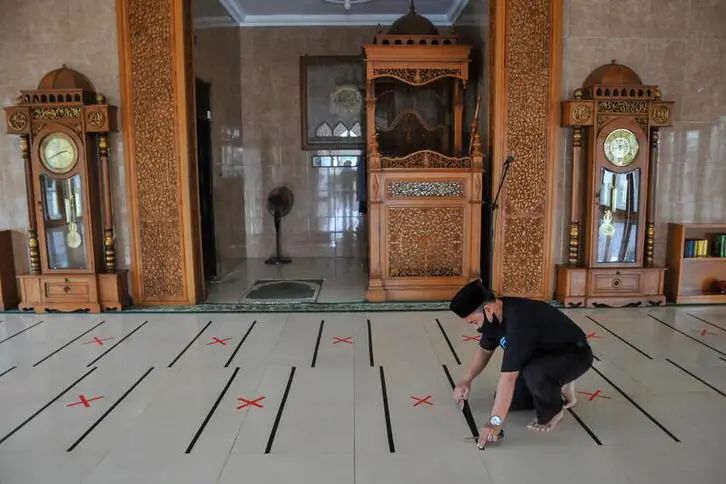PHOTO
JEDDAH: Millions of Muslims around the world celebrate the festival of Eid Al-Fitr on Sunday under some form of lockdown because of the coronavirus pandemic.
Restrictions on movement to curb the spread of the virus, including a 24-hour curfew in Saudi Arabia, led to muted festivities, with none of the usual crowded streets, or malls packed with last-minute shoppers.
In an Eid message, King Salman thanked Saudis and expats in the Kingdom for complying with measures to protect their health. “I greatly appreciate your commitment to spending Eid Al-Fitr in your homes, consciously and responsibly, respecting social distancing procedures and sending Eid congratulations through electronic communications and correspondence,” he said.
Some Saudis said Eid under lockdown was a unique experience, and had forced them to consider alternatives to the usual celebrations. “I have never been this thoughtful about Eid before,” Amal Al-Thobaiti, from Jeddah, told Arab News.
“It is my first time putting this much effort into it, but with the current depressing crisis we couldn’t allow it to get gloomier.” Al-Thobaiti and her family made Eid decorations by hand, prepared a varied breakfast menu, and ordered Eid chocolates online.
“I also ordered gifts for the family online, and got myself new pajamas — it’s the first time for me doing all this and it feels like the first Eid ever,” she said. “I wanted to compensate for not being able to go to the sea or dine in a restaurant as usual.”
Elsewhere, a spike in coronavirus infections in Afghanistan on Saturday doubled the number of cases to nearly 10,000 from 10 days ago, forcing authorities to impose a strict Eid lockdown, especially in Kabul.
In Indonesia, the world’s largest Muslim-majority country, people turned to smugglers and fake documents to evade a travel ban and reach home in time for Eid.
Every year millions take part in a mass migration similar to Chinese New Year. Fearing a public health disaster, the government banned travel, but then relaxed the ban for those who could prove they were virus-free and had a professional reason to travel.
Police are now battling a tide of fake travel documents being sold online and through word of mouth.
Millions of Muslims across Africa, where 100,000 have been infected by the virus, also celebrated a different Eid. Mosques in Somalia’s capital Mogadishu were crowded, making social distancing impossible. However, most streets were empty, and the children who normally flock to public gardens for Eid were nowhere to be seen.
In Niger’s capital Niamey and Tanzania’s capital Dar es Salaam, some mosques were crowded as usual, but many were closed as imams decided they could not hold prayers safely. One man in Abidjan in Cote d’Ivoire said: “We miss all the people, all the human warmth. There is no holiday atmosphere.”
Copyright: Arab News © 2020 All rights reserved. Provided by SyndiGate Media Inc. (Syndigate.info).





















